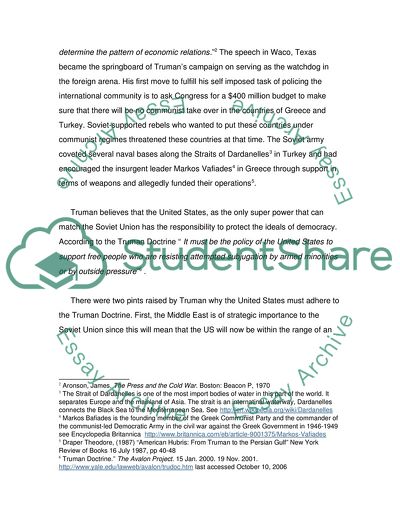Cite this document
(The Truman Doctrine Assignment Example | Topics and Well Written Essays - 2750 words, n.d.)
The Truman Doctrine Assignment Example | Topics and Well Written Essays - 2750 words. https://studentshare.org/history/1704977-was-the-truman-doctrine-an-exaggerated-response-to-an-imaginary-threat
The Truman Doctrine Assignment Example | Topics and Well Written Essays - 2750 words. https://studentshare.org/history/1704977-was-the-truman-doctrine-an-exaggerated-response-to-an-imaginary-threat
(The Truman Doctrine Assignment Example | Topics and Well Written Essays - 2750 Words)
The Truman Doctrine Assignment Example | Topics and Well Written Essays - 2750 Words. https://studentshare.org/history/1704977-was-the-truman-doctrine-an-exaggerated-response-to-an-imaginary-threat.
The Truman Doctrine Assignment Example | Topics and Well Written Essays - 2750 Words. https://studentshare.org/history/1704977-was-the-truman-doctrine-an-exaggerated-response-to-an-imaginary-threat.
“The Truman Doctrine Assignment Example | Topics and Well Written Essays - 2750 Words”. https://studentshare.org/history/1704977-was-the-truman-doctrine-an-exaggerated-response-to-an-imaginary-threat.


